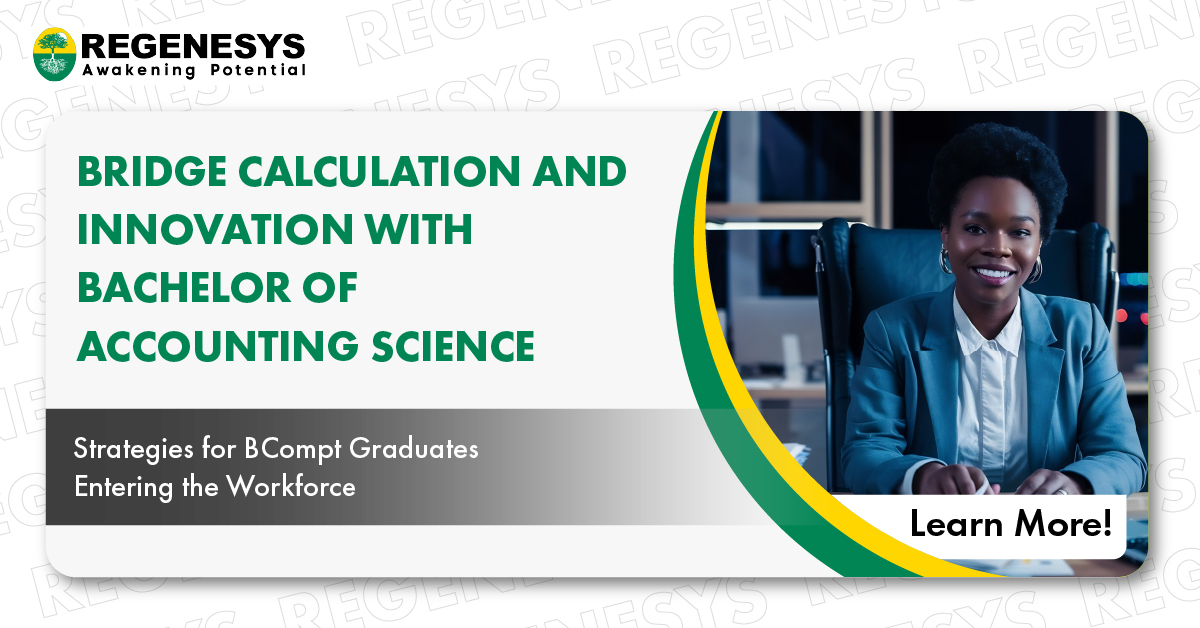Transitioning from student to professional in the field of accounting is a significant milestone that requires careful planning and execution. After completing a Bachelor degree in Accounting Science, students have a strong grasp of accounting fundamentals, but entering the workforce delivers its own set of obstacles. Successfully making this shift calls for careful planning and initiative in decision-making. Without the right support and advice, new graduates may feel overwhelmed.
This guide provides you with practical tools and strategies for a smooth transition, enabling you to succeed in the challenging field of accounting by utilising your abilities and expanding your professional connections.
Table of Contents
Career Guidelines For Bachelor of Accounting Science Students
As students start their journey towards becoming accounting professionals, they can find invaluable guidance in the principles outlined below. These principles serve as a roadmap and a compass, directing you through the intricate landscape of the accounting profession. Each guideline is carefully composed to support your development and foster your achievements in this dynamic field. By embracing these principles, you’ll gain essential knowledge and skills and develop the mindset and resilience necessary to thrive in the ever-evolving accounting world. Let these principles be your guiding light as you navigate the challenging path towards a successful career in accounting.
Step 1: Define Your Career Goals
As you prepare to start your career, it’s important to pause and think about what you want to achieve. Consider which aspect of accounting appeals to you the most – auditing, tax, financial reporting, or management accounting. Also, assess the kind of company you see yourself working for – whether it’s a public accounting firm, a corporation, a government agency, or a non-profit. Setting clear career goals will guide you and help you make wise choices along the way.
Step 2: Obtain Relevant Certifications
When it comes to accounting, obtaining certifications can greatly boost your reputation and desirability as a professional. Based on your career aspirations and location, you should contemplate getting certifications like the Certified Public Accountant (CPA), Chartered Accountant (CA), Certified Management Accountant (CMA), or Certified Internal Auditor (CIA). Take the time to look into what each certification entails and create a study schedule to ensure you are ready for the exams.
Step 3: Gain Practical Experience
Although academic knowledge is important, gaining practical experience is equally beneficial in the accounting industry. To get hands-on experience, regard seeking internships while in school or starting in entry-level roles after graduation. Internships offer exposure to actual accounting practices and opportunities to connect with industry professionals. You can also enhance your skills and network by volunteering for pro bono accounting projects or joining accounting-related student organisations.
Step 4: Build Your Professional Network
Networking is essential for advancing your career in accounting. Attending industry conferences, seminars, and networking events is a great way to connect with professionals in the field. You can join professional associations to access resources, networking opportunities, and education programmes. Utilising online platforms such as LinkedIn to connect with professionals, join groups, and showcase your expertise is also recommended.
Step 5: Constantly Develop Your Skills
The field of accounting is always changing, with new rules, technologies, and trends influencing the industry. It’s important to keep up with these changes and continuously improve your skills. Participate in training sessions, workshops, and online courses to increase your expertise and stay competitive in the field. Additionally, consider pursuing higher education or certifications to specialise in a specific area of accounting and improve your job opportunities.
Step 6: Stay Ethical and Compliant
Upholding ethical standards is crucial in the accounting field, as accountants handle important financial data and ensure the accuracy of financial reports. Ensure you are well-versed in the ethical guidelines set by organisations and follow them diligently in your work. Stay updated on regulatory requirements and comply with laws and regulations to maintain high integrity and professionalism in your practice.
Bachelor of Accounting Science Programme At Regenesys
The Bachelor of Accounting Science programme at Regenesys School of Finance offers a challenging academic experience aimed at providing students with a thorough understanding of accounting principles and practices. This three-year programme includes 22 mandatory core Accounting Science modules covering various aspects of financial accounting, auditing, financial management, and taxation. The curriculum is designed to help students develop the necessary knowledge, skills, and practical abilities needed to succeed in the ever-evolving fields of accounting and finance. Aligned with the National Qualifications Framework (NQF) Level 7 standards, the Bachelor of Accounting Science degree ensures graduates are well-equipped for the professional world.
Experience a world of opportunities where academic excellence intersects with practical skills. Are you ready to pave the way for your success? Launch a successful career in accounting and finance at Regenesys School of Finance. Our Bachelor of Accounting Science programme will help you become an expert in financial management, auditing, and taxation. Enrol now and look forward to a future full of possibilities!
Conclusion
Transitioning from student life to a thriving career in accounting is a journey filled with challenges and rewards. This manual serves as your comprehensive guide to help you succeed in your career. Begin by setting specific career goals and acquiring the required certifications to showcase your skills. Gain hands-on experience through internships and starting positions while forming strong connections within your field. Stay committed to continuous growth by continuously learning and adapting to industry changes. Maintain a high level of ethics to earn trust and credibility. Embracing a mindset of continuous learning, adapting to industry changes, and striving for excellence are key components to achieving your goal of becoming a reputable and respected accounting professional.
Take the first step towards your goals by enroling in Regenesys School of Finance’s holistic Bachelor of Accounting Science programme today!
Frequently Asked Questions (FAQs) – From Student to Professional: A Step-by-Step Guide for Bachelor of Accounting Science Graduates
Q1. What is the difference between BCom Accounting Science and Accounting Science programmes?
When comparing BCom Accounting Science and Accounting Science programmes, we see a BCom in Accounting Science has a wider range of courses, including accounting and other commerce subjects. Conversely, an Accounting Science programme concentrates on accounting principles, practices, and theories exclusively, offering a more focused education in the field.
Q2. How can students specialising in Internal Auditing within Accounting Science prepare for their future careers?
Accounting Science students can prepare for careers in Internal Auditing by gaining practical experience through internships, obtaining certifications, developing strong analytical and communication skills, and staying updated on industry trends. These proactive steps equip them with the tools needed to excel in Internal Auditing.
Q3. What is the role of a Bachelor of Accounting Science in Internal Auditing?
The Bachelor of Accounting Science plays a crucial role in Internal Auditing by conducting audits to assess internal controls and risk management. They also identify areas for improvement in operational efficiency, compliance, and risk mitigation. The Bachelor of Accounting Science Degree provides recommendations to management to enhance controls and address issues and assists in developing and implementing audit plans and procedures.
Q4. What career paths are available for graduates with a Bachelor of Accounting Science in Financial Accounting?
Career paths for graduates with a Bachelor of Accounting Science in Financial Accounting:
Financial accountant
Auditor (internal or external)
Tax consultant
Financial analyst
Management accountant
Budget analyst
Financial controller
CFO (Chief Financial Officer)
Q5. What are the Bachelor of Accounting Science requirements?
Prospective students interested in pursuing a Bachelor of Accounting Science must meet specific requirements to gain admission into accredited institutions like Regenesys School of Finance. They are:
Matric with Bachelor pass or NQF level 4 equivalent qualification required.
Competency in Mathematics and written and oral communication skills at NQF Level 4 is necessary.
Alternatively, a relevant NQF Level 5 qualification from an accredited institution as per SAQA requirements may be accepted.
Some institutions may require specific entrance exams or interviews.
Proficiency in English is typically necessary as many courses are conducted in this language.
Understanding these requirements is essential for aspiring students pursuing a Bachelor of Accounting Science degree. Additional requirements or prerequisites may vary; contacting the Regenesys School of Finance for more information on Bachelor of Accounting Science is advisable.







